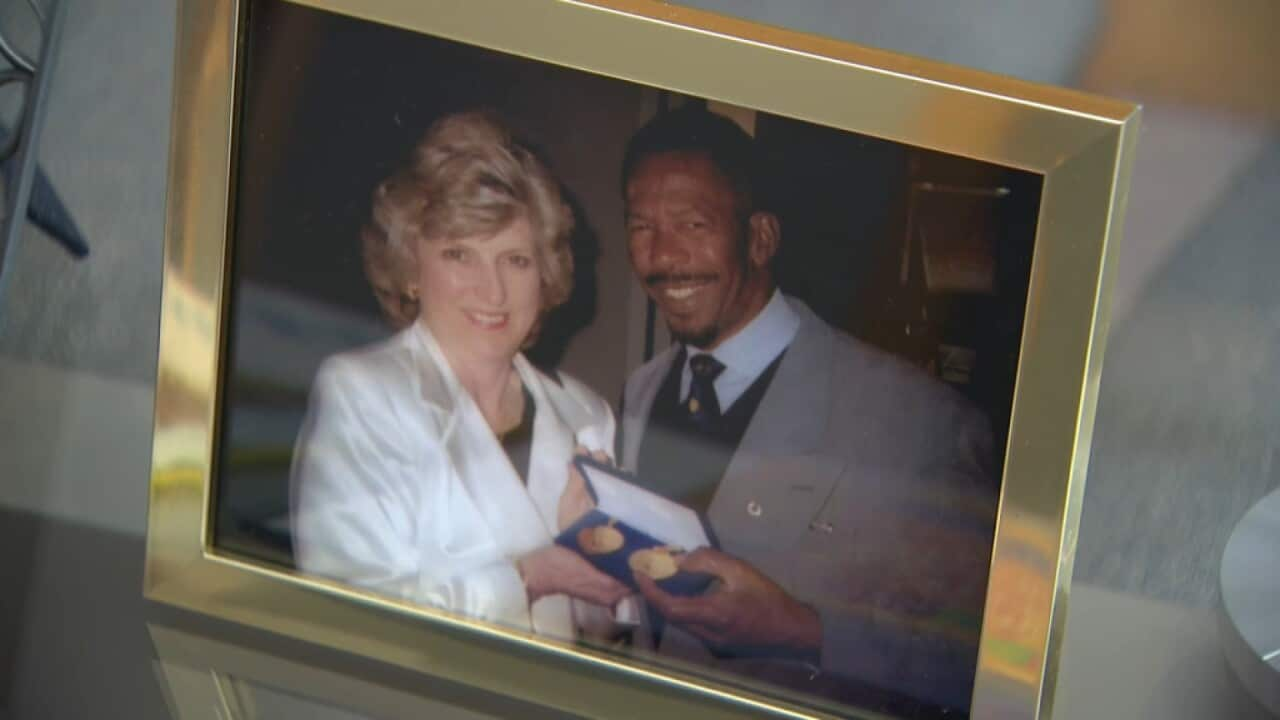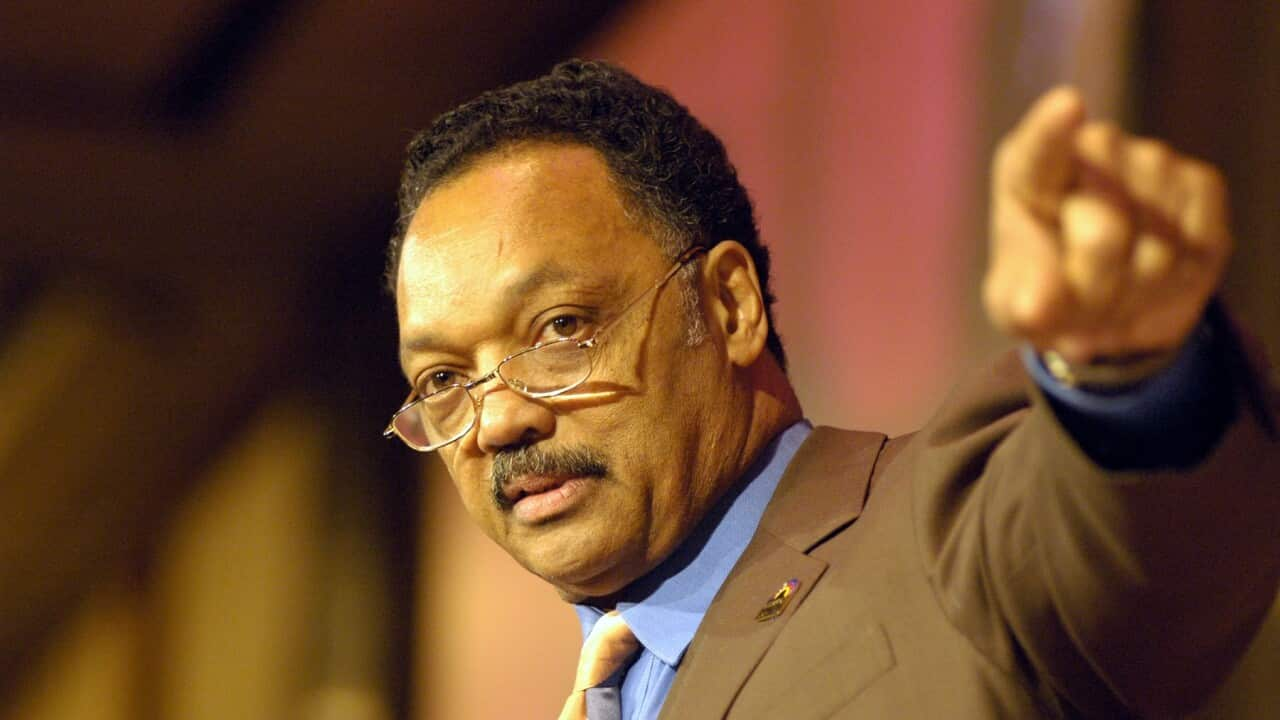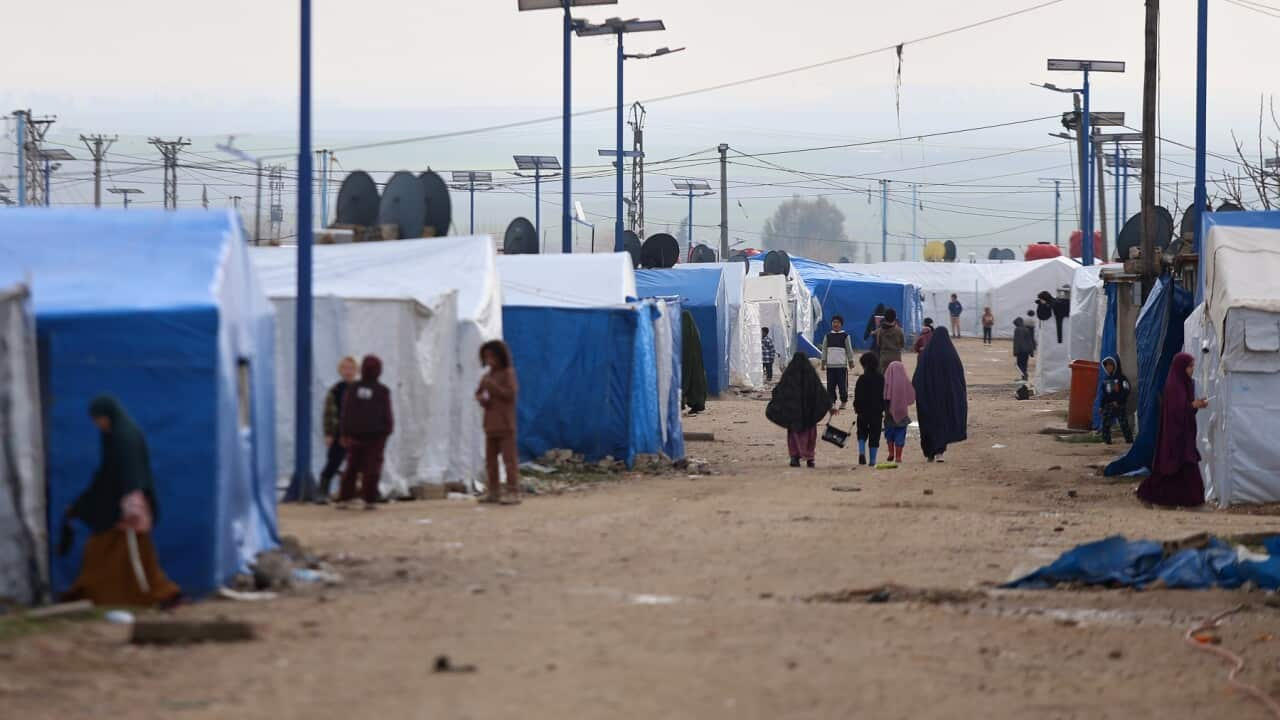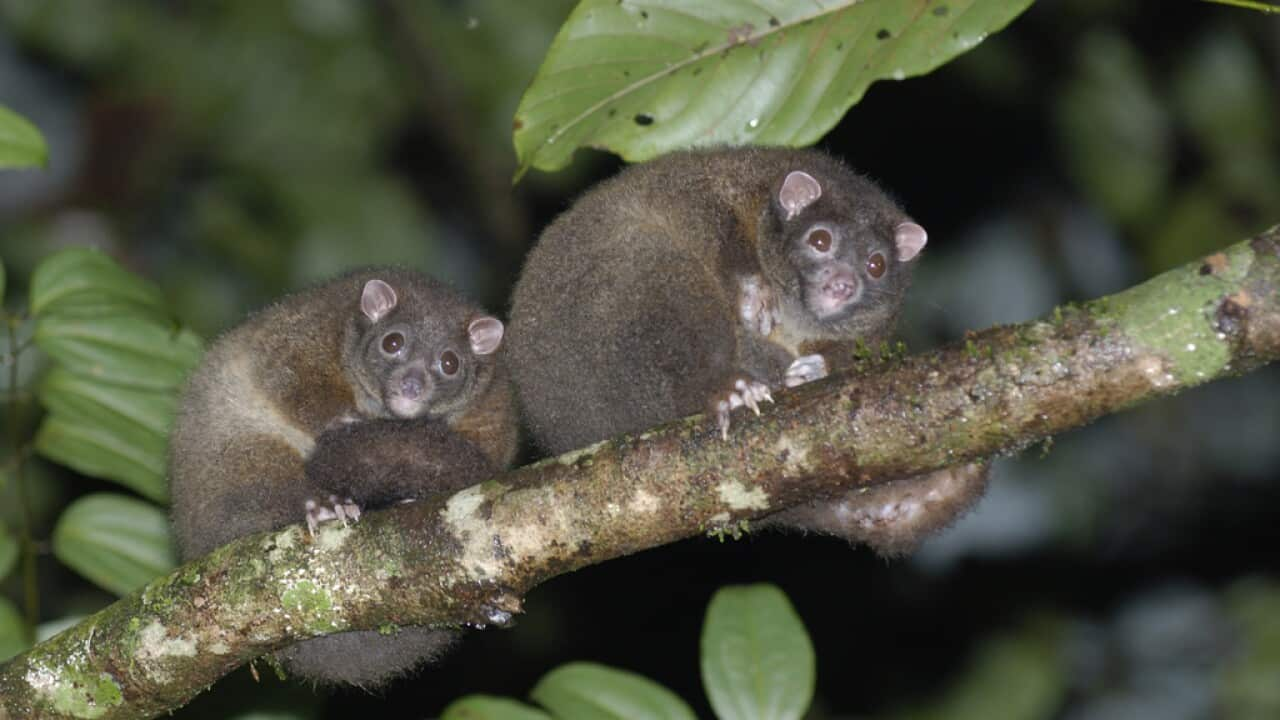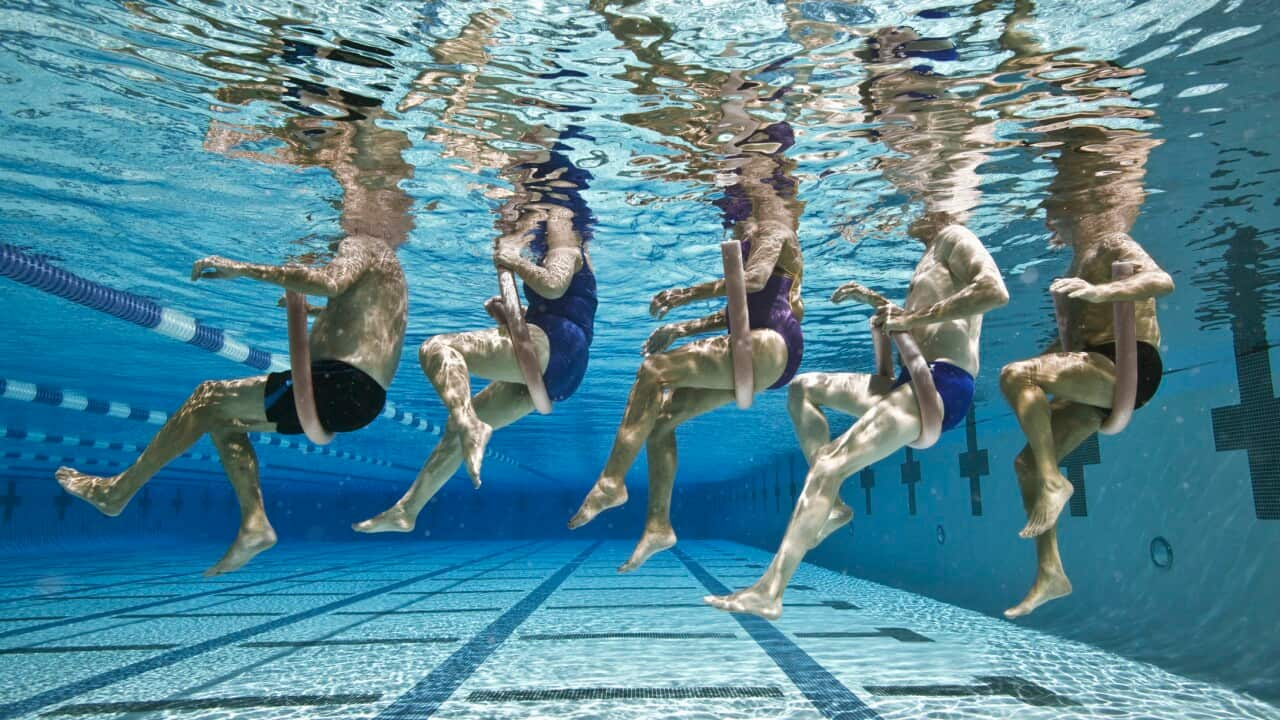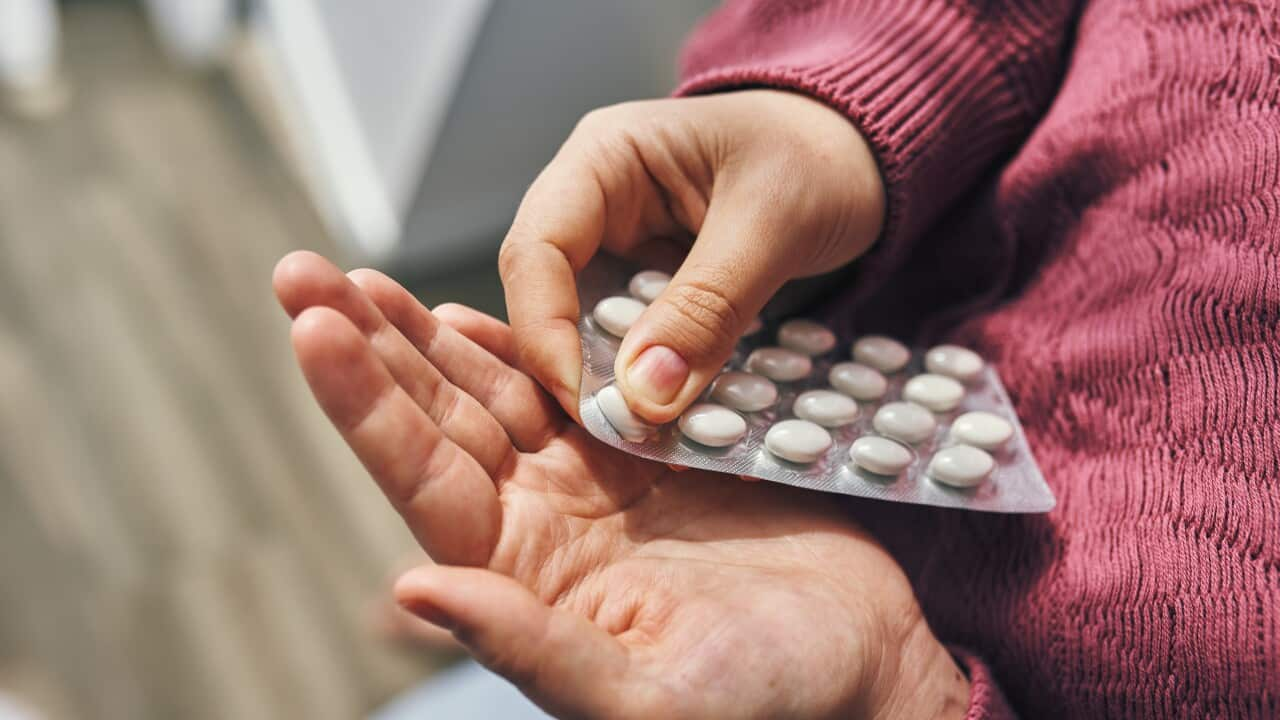Listen to Australian and world news, and follow trending topics with SBS News Podcasts.
TRANSCRIPT:
At a reunion lunch in Sydney, pioneer volunteers of the city's 2000 Olympics are taking a trip down memory lane.
It's been more than 25 years since they took part in the games.
But for them, the friendships they forged are ever-present.
"What we had going was too good to let go of."
"Yes, yes. And we formed friendships. We didn't know each other before 1992, but because of the games we formed these friendships."
"It was amazing. You could speak to anybody."
"Everyone was happy."
"Yes, weren't they?"
"Whether you were on the train or the bus or walking the streets. Yeah, it was fantastic."
"It was very special."
Nearly 47,000 people ((46,967)) volunteered throughout the games, according to the Australian Olympic Committee.
The pioneer volunteers gave their time - not only during, but also in the lead up to the Olympics - some as early as 1992 ahead of Sydney's bid for the games.
Though the group tries to meet every four months, for some this could be their last milestone reunion.
"Realistically, this is the last. Because when we get to 2030, the next milestone, everybody will be looking to Brisbane 2032. Sydney will be past history."
That's Rosemary Mula, a so-called, 'super-volunteer' who has been involved in multiple Olympic games.
Now in her 80s ((84)) she dreamed of competing in the Olympics since she was a child.
"I say to kids in schools, I wasn't an Olympian. But I've had an Olympic journey."
In 1956, she reluctantly moved to Australia at age 15, trading countryside England for Melbourne.
"In those days it was a ship journey, six weeks, and you were never going to go home again. So, it was a major decision. And as a young teenager for me it was traumatic, because I was leaving my family, my school, my friends."
A chance encounter at the city's 1956 games inspired her own Olympic journey.
"And my father was a foundry worker. I don't know how he got me a ticket, but he did and I was at the Melbourne Cricket Ground, which was the Olympic Stadium, and it was the day of the triple jump final."
With no Brits or Australians in the final, she cheered for the defending champion, Brazilian athlete Adhemar Ferreira da Silva, who ended up winning despite being considered too old to claim another gold medal.
"It's before the days when athletes were psychologically focused and all the modern techniques that are used... And he ran around and said, 'You kids helped to win this medal.' And that was me hooked for life. I wanted to be an Olympian, I wanted to march in an Opening Ceremony."
But in university, Rosemary realised she wouldn't make it as an Olympic hurdler.
Instead, she became a teacher and later volunteered in the Sydney games.
"I lost some of my enthusiasm and then my appendix blew up. So I got out of training, then discovered boys and got a job and so forth, so. But my passion for the Olympic games never died. It was always there."
Years later she recognised Da Silva in Singapore, telling him she witnessed him win the gold medal.
"He was so excited because again it was pre-television, pre-recording, and he said, 'You're the only person in my life that saw me win that medal.'"
They kept in contact, with Da Silva later staying with her family during the Sydney games.
"I said to him, 'Adhemar, I was never an Olympian but I've had seven years of the most amazing Olympic journey as a volunteer, but my journey is over.' And he took my face in his hands and he said, 'Rosemary, your Olympic journey is not over. You must find a way.'
Rosemary went on to march in an Olympic Opening ceremony with Kiribati as their team attaché and has since volunteered all over the world.
"Don't let any adult - teacher, parent, family, friend - tell you you can't do something. If you want to write music, or write stories or be an actor or an athlete, you can. But it won't happen if you sit on your bottom. You have to get up and do something to make it happen."
Back at the reunion lunch, pioneer volunteers mull over whether they'll help out with the Brisbane 2032 Olympics.
"We'll see. I asked a friend of mine who is much younger and I said, 'Should we do Brisbane?' And he said, 'I'll look for accommodation.' And I said, 'Make sure it's wheelchair accessible.' (Laughs)."
And from Rosemary Mula, this message:
"We had such an amazing reputation for being outstanding volunteers and other countries that have hosted the games use us as a benchmark."
They're holding on to the magic of the games, and passing the torch for future generations.
